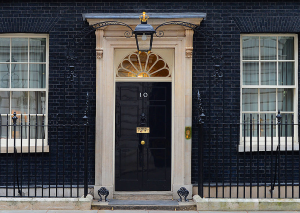Martin Howe QC says "complex and delicate" process ahead, bloggers argue all is far from straightforward
Martin Howe QC has told the Guardian that the planned enactment of the Conservatives' British Bill of Rights will be a "complex and delicate" process.
The Bill will replace the Human Rights Act, which the Conservative government has said it wishes to scrap.
Howe told the Guardian that a 40-page draft of the Bill is in existence, though it has yet to be published. Much of the text is said to consist of sections incorporated from the European Convention on Human Rights.
"I'm very pleased that it appears that human rights reform will be a high priority for the incoming government. It's a complex and delicate area with sensitive issues. The purpose of the reforms is not to take away people's rights but rather to protect our fundamental rights in a more sensible way. There's a lot of practical working-through and thinking that needs to be done," Howe was quoted as saying.
According to the Guardian, Howe said the intention is to incorporate into UK legislation all the rights contained in the original European Convention of Human Rights "rather than the doctrines accreted and embroidered by the European court of human rights in Strasbourg over the years".
 Dominic Cummings, who acted as main adviser to the new Justice Secretary Michael Gove from 2007 to 2014, said on his blog that there has been "hysterical and misleading" reporting from both left and right about what might happen to human rights.
Dominic Cummings, who acted as main adviser to the new Justice Secretary Michael Gove from 2007 to 2014, said on his blog that there has been "hysterical and misleading" reporting from both left and right about what might happen to human rights.
He said the "dismay by some and excitement by others" are both very premature.
Cummings summarised the legal issues and problems faced and said "[t]his should make clear that Gove does not have the power to solve these problems unless No10 decides on a truly radical approach to the EU renegotiation. The answers can only come from No10 if they come at all. Liberty can calm down. Excited Tory pundits should keep their enthusiasm for radicalism in check. David Cameron has successfully played on the ignorance of MPs and the media about these issues for a decade to encourage a feeling of radicalism in some quarters while the lawyers read the actual words and know the truth."
Joshua Rozenberg wrote in the Guardian today that human rights reform is "immensely complicated". Senior Conservatives have told Rozenberg that it was more important to get it right than to try to rush something through.
"[W]e can be sure that the Conservatives do not have a UK bill of rights ready to introduce in the opening session of the new parliament," Rozenberg said.
Matthew Scott says in the Telegraph that Gove's attempt to repeal the Human Rights Act "faces almost insurmountable odds," and will run into serious legal obstacles - not to mention the political opposition.
"[T]he legal and political problems of repealing the Act are entangled in a Gordian knot which will require either exceptional skill and patience to unpick, or a dramatic flash of the legislative sword to sever," Scott wrote.
Sanchita Hosali, Deputy Director at the British Institute of Human Rights, says "there will be much to discuss in terms of the legal and political realities of the proposals, how they might happen and how they might be challenged."
Mark Elliott, Reader in Public Law at the Faculty of Law, University of Cambridge, blogged today that repealing the Human Rights Act and enacting a British Bill of Rights will be far from straightforward.
Elliott argues that the House of Lords, which is "unlikely to meet these proposals with equanimity", could be one potential complicating factor.
Philippe Sands QC said on Newsnight that the Conservatives face an "enormously difficult" task, made more so by devolution and the problems repealing the Human Rights Act would cause with Scotland, Wales and Northern Ireland. Sands said it would be "shocking" for the UK to leave the European Convention on Human Rights, but this is what the Conservatives are planning.
The Guardian notes that human rights groups and the former attorney general, Dominic Grieve QC, have warned that respect for the law will be undermined across Europe if the UK effectively defies ECtHR rulings.
Liberty has started a campaign to save the Human Rights Act, saying the Conservatives' Bill will "weaken the rights of everyone, meaning less protection against powerful interests."
The Guardian reported yesterday that the repeal of the Human Rights Act is intended to be one of the measures to be included in the Prime Minister’s plans for the first 100 days, when the Queen’s Speech is delivered on May 27th.